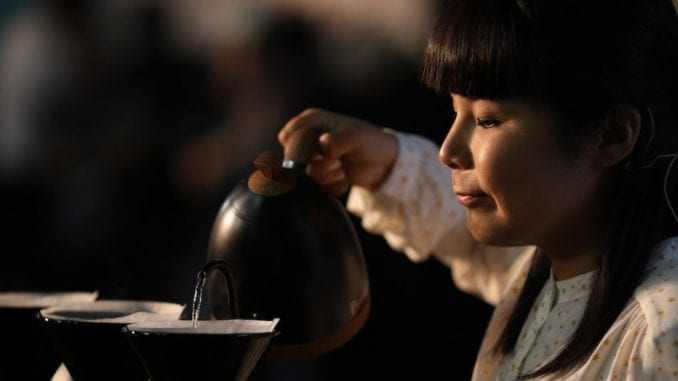
Emi Fukahori, the 2018 World Brewers Cup champion, discusses how she got into coffee competitions, winning on the big stage, and running a coffee business.
BY CHRIS RYAN
BARISTA MAGAZINE ONLINE
Cover photo courtesy of World Coffee Events
Emi Fukahori never expected to be working in the specialty-coffee industry. In fact, even after she had taken an interest in coffee competitions—and had begun taking part in her first contests—she was still working outside of coffee, pursuing a career in the tourism industry.
Eventually that changed, though, and she became immersed in coffee both in career and competition. The latter side has taken her to great heights in recent years: Emi won the 2015 Swiss Barista Championship, and in 2018, after switching to a different competition, won the 2018 World Brewers Cup Championship. On the professional side, Emi is the co-owner and barista of MAME, a Zurich café she owns with her real-life partner, Mathieu Theis, himself the three-time National Barista Champion of Switzerland.
Originally from Japan, Emi discovered a passion for coffee while studying English in London in the mid-2000s, and it grew further when she came across coffee competitions while living in Switzerland. We talked to Emi about how she fell in love with competitive coffee, her path toward World Brewers Cup victory, and much more.
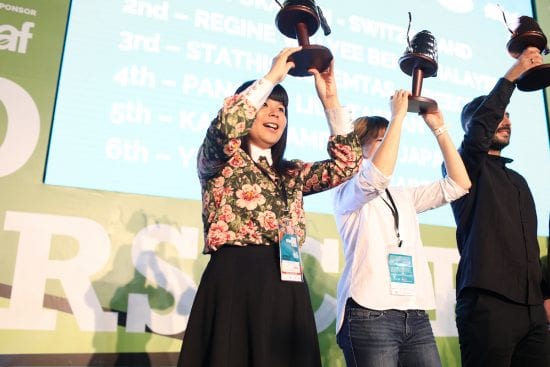
What are some of your earliest memories of coffee? What was your relationship with coffee before you started working with it?
I discovered the flat white when I spent a year learning English in London, back in 2006. At that time I ordered flat whites because my friends did. It was my “happy” drink with them in cafés, enjoying chats and shared fun; it was not so much about the coffee itself. I had no idea how that drink was made!
What did you think you might pursue professionally before coffee? How did you come to work in coffee?
I did not except to work in coffee. But learning more about specialty coffee, it offers what I enjoy in life—good coffee, good people, and good vibes.
I studied hotel management and tourism at university. This is because I wanted to work in the service industry; it pleases me to please others. I was working in the tourism industry when I encountered specialty coffee and barista championships.
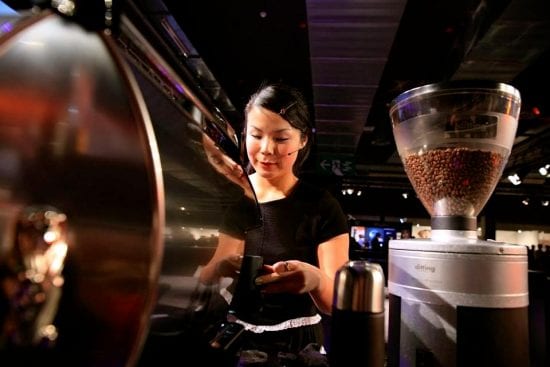
Can you tell me more about that—how you got into coffee competitions, and which ones you’ve taken part in?
I was introduced to coffee competitions in 2014 when I visited a local roastery because I was curious about coffee. There was Nina Rimpl, the Swiss barista champion, practicing her routine and letting me try her cappuccino. It tasted like strawberry as described, and she said it was because the coffee was natural processed from Ethiopia. It still didn’t connect with me why that made it taste like strawberry—I had no idea. Her trainer Philip then encouraged me to compete in the Swiss Barista Championship if I wanted to learn about coffee. So I did in 2015.
Every day after work, I would visit that roastery and train for the day. It was intense but super fun! So I actually started competing before I worked in coffee.
I took part in two Swiss Barista Championships, in 2015 and 2016. I won in 2015, so I got to take part in the World Barista Championship in Seattle, where I got 30-something place. I placed third in 2016. I then competed in the Swiss Brewers Cup Championship in 2017 and got third place. I returned in 2018 and got first place, so I got to compete at the World Brewers Cup Championship in Brazil, where I won!
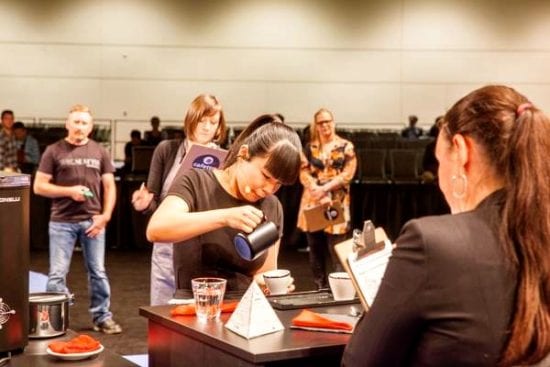
Why did you decide to shift from Barista Competition to Brewers Cup? Can you describe your experience in the 2018 World Brewers Cup and what it felt like to win?
I met my life and business partner, Mathieu, through coffee. We competed at the Swiss Barista Championship in 2016, and he won.
After being on stage in Seattle at the WBC, I wanted to be back at worlds and see what others bring to the stage (as it’s the best experience for learning about coffee and making friends). Battling for the same title as Mathieu made me think of narrowing my chances, so I changed categories to compete, and competed in Brewers Cup. Winning the worlds still feels unbelievable, even now. It gave me even more motivation to keep it up and keep learning new things!
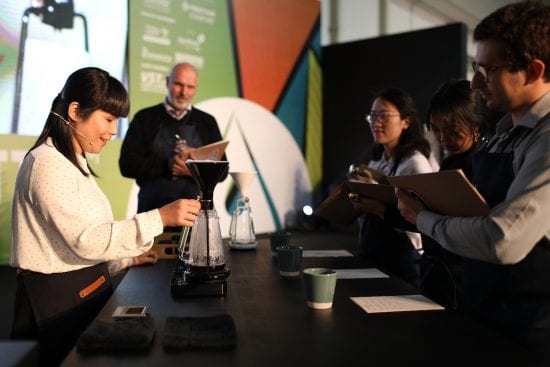
What is your relationship like with competition now? Do you use your competition experience to work with Mathieu to strengthen his routines?
I learned so much about coffee, interacting with customers, and workflow through competition. I incorporate a lot of what I learned into my daily shifts at the café.
Mathieu is an excellent barista both on stage and at our cafés. He is very efficient. As we worked on his routines for WBC 2018 and 2019, he had beautiful ideas with great efficiency, and I added a bit of “kindness” and “care” in the presentation. Judges are customers; they are with him to enjoy his coffee and service. Putting efficiency in the forefront can sometimes mask the charm he naturally has, so we reminded each other to combine both service and efficiency.
Finally, can you tell us a bit about MAME? Why did you and Mathieu decide to launch it, and how would you describe what you do there?
We opened MAME in 2016 to create a community in Zurich to celebrate specialty coffee. We wanted to bring awareness that there are many different flavor opportunities in coffee, and each one of us can find what we like. We as baristas communicate about coffees and guide our customers to find what they enjoy. We also offer private home barista courses and cuppings, and we are starting our own roastery soon.
It’s very fun, and our lives are full of joy in coffee with lovely people!

